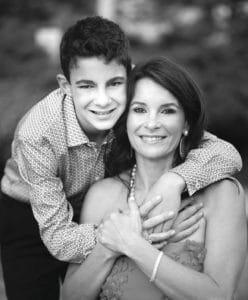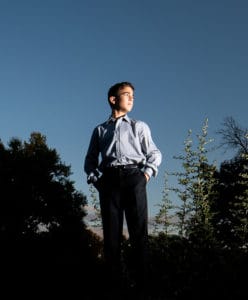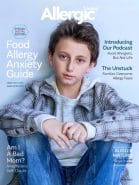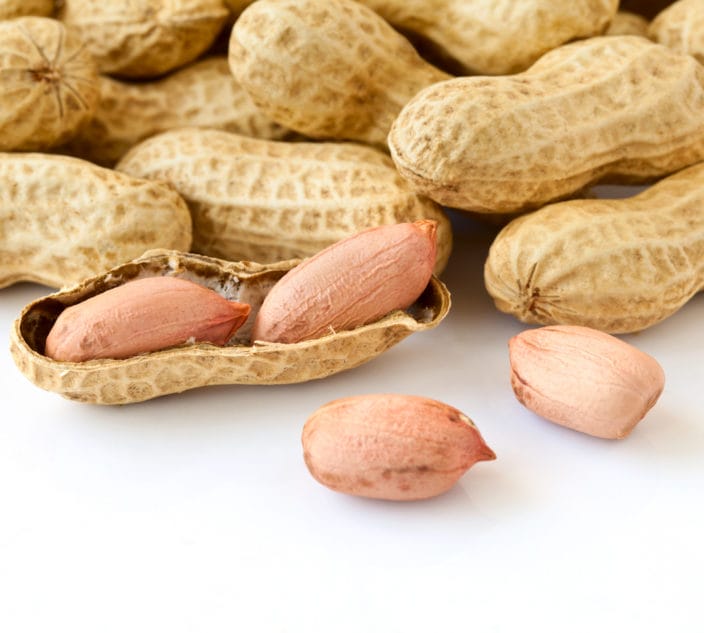
On a seemingly ordinary day a few years ago, I was picking up my fifth-grader from school. In the car, I asked Joshua about his day. Completely out of character, he broke down in tears. What was the matter? I asked.
He explained that in health class, they had been learning about nutrition and how to read food labels, including ingredients and fat content. Lunch period followed and everyone from health class was busy analyzing the fabulous new type of ice cream bar they got for dessert.
Josh was going to a school designated to be “nut-free,” so he did not feel the need to read the label until after he’d eaten the ice cream. That’s when he noticed it: this dessert had a “may contain” statement that listed several tree nuts as well as peanut. Josh has a severe peanut allergy.
So had he told the teacher? No, since all the kids were excited about the new bars. “I didn’t want to ruin everyone’s fun,” he said.
This was obviously a problem. I stressed to him that if the bar had traces of peanuts and he had a reaction, no one would have a clue that he’d eaten something unsafe and that he needed his auto-injector. In addition, several school friends had both peanut and tree nut allergies and needed this information as well. He’d already thought of both these things. This was why he was crying.
The Elephant in the Cafeteria
My immediate action was to call our principal. It turned out the supplier had made a mistake and substituted the new bar for the usual one that was deemed safe. The new bar was pulled. This was an easy fix, plus a reinforcing lesson for Josh to always read a label before eating the food.
Yet there was a bigger issue here, like the elephant in the cafeteria. How could I help my son to confront this “embarrassment factor” when dealing with his food allergy? He had always been proactive about his severe allergy. But here on the cusp of the teen years was a danger sign – a new reluctance to speak up.
As they mature, kids are under tremendous peer pressure and don’t want to be labeled as “different”. A few studies have revealed that about one-third of children with food allergies have faced bullying or harassment related to their condition, which can cause a person to stand out.
Thankfully, the ice cream bars incident had no consequences. But it was a reality check. I began to think about situations going forward that Josh will face, and which he might find awkward.
Study after study has shown adolescence to be a time fraught with experimentation and risk, in part related to a phase of brain development that can lead to valuing peer approval above perceived dangers. When it comes to food-allergic teens, research shows a propensity to become too relaxed about allergen avoidance and carrying epinephrine.
Embarrassment, Cousin of Anxiety
Dr. Joshua Massler, a New Jersey clinical psychologist, explained to me that the emerging self-awareness of younger children peaks between 10 and 13 years old, as kids become self-conscious.
The concept of wanting to “fit in” becomes strong. “Anxiety is the cousin of embarrassment,” he says. “For many kids, embarrassing experiences can be very upsetting and may lead to anxiety.” Massler says with younger food-allergic children, the approach is to find the balance between having them grasp the seriousness of the condition and the need for food avoidance, without tipping them into over-wrought anxiety.
But by the teens, both the peer dynamics and brain development are changing in front of your and your child’s eyes. As a teen, I realize my son will attend many parties without adult supervision. School trips and dances and team sports will all involve food, and the need to communicate. I impress upon him the importance of never trying to tough it out alone in case of a reaction.
A cautionary and tragic tale is that of Oakland University sophomore Chandler Swink. Chandler ate a home-baked cookie at a college party in late 2014 that he realized contained his allergen. He alerted no one, went out his car to inject himself with his epinephrine, then drove alone to hospital. But Chandler didn’t make it. Anaphylaxis would overwhelm the young man, who was later discovered unconscious in the hospital parking lot.
I don’t dwell on tragedy with my son, but I’ve learned to appreciate the inherent dangers in the mix of food allergies and embarrassment. The trouble with this combination is the silence that ensues. It can lead teens to not telling friends about food allergies, staying quiet about symptoms, or not asking restaurant staff important questions about whether a food or ingredient is safe.
Bad Messages to Young Travelers
As an advocate for better accommodations when flying with food allergies, I also think of my son traveling alone one day. At Nonuttraveler.com, I collect testimonials. One family shared with me that after they disclosed their daughter’s food allergy, they were asked to leave a plane “due to the risk.” They flew the next day on the same airline. But this time did not mention the allergy – for fear of again being asked to leave.
The message such treatment sends a young person is to hide a food allergy from airline crews. And that’s a bad message.
If your teen or young adult does not disclose a food allergy because of embarrassment or the fear of being denied a seat, one day when traveling alone, they may unintentionally be exposed to their allergen. This kind of situation could turn serious, even life-threatening, as the flight crew likely would not know this was an allergic reaction and that epinephrine was required right away.
So what can we do to help our food-allergic kids as they transition into their teens? Massler says parents can model behavior to help replace irrational thinking that crops up with calm and rational thinking, and help temper teen over-reactions through efforts like praising positive coping skills.
Friends Will Have Your Back

The psychologist explains that while we can’t shield children from embarrassment, “we can help them to build the resilience and confidence they need to deal with it in a healthy way.” His advice is to reinforce that the people who genuinely care and support kids like Josh will get
behind them.
“Those who are truly your friends won’t want you to expose yourself to harm,” he says.
“It’s important to remind the kids that anyone who is not supportive of your food allergy is not someone you really want as your friend.” He would emphasize: this is a shortcoming of the person, not you.
Massler notes the importance of speaking to classmates about your food allergy, since many kids may not comprehend that even ingesting a few crumbs of the wrong cookie could be dangerous.
Educate a Teen’s Supporters
Since a child with food allergy appears healthy unless exposed to an allergen, those who haven’t been educated may not grasp the seriousness of the condition.
One study from Chicago’s Lurie Children’s Hospital shows that teenagers with food allergies were considerably less likely to engage in risky behaviors if they had support through educated peers, teachers and individual school health plans.
At the time of the ice cream bars incident, Josh did say he was unsure whether everyone in his class knew about the severity of his allergy and how he must manage around food. “Their moms know,” he said. “But do my friends really understand what it means?”
As a safe travel advocate, I notice that the airlines which support allergic travelers – stocking epinephrine auto-injectors, training crews on anaphylaxis and allowing pre-boarding to wipe down seating areas – are the ones that collect most of the positive testimonials on my website.
As with a classmate, if you’re a flight attendant trained on anaphylaxis emergency protocols and recognizing an allergic reaction, you’re more likely to do your best to keep a food-allergic passenger safe on your shift. Understanding leads to caring.
Today, Josh is in eighth grade in a middle school that’s not peanut-free, and has a group of school friends who are highly aware and supportive of his food allergy. For his bar mitzvah project in 2018, my son chaired a team for our local FARE Food Allergy Walk, and educated his classmates and peers about the disease. It was empowering for him to help others to understand the severity of food allergies, and to learn to recognize the signs of anaphylaxis. This knowledge will help his peers to keep him and other classmates with severe food allergies safer.
Josh is also a nationally ranked tennis player and we have found that explaining his food allergy to parents and fellow athletes has led to greater understanding and respect for this potentially life-threatening condition. Many of the other kids on the tennis circuit look out for him, and they take his allergy seriously.
What started out as a concerning allergy incident has led Josh and me to a deeper appreciation of the critical importance of communication and education with severe food allergies. We’ve only started on the long path through his teen years, but I am encouraged by what we’ve learned and
by his positive first steps.
Lianne Mandelbaum is the founder of NoNutTraveler.com.

Struggling with Anxiety?
Then get Allergic Living’s “Food Allergy Anxiety Guide.” This e-magazine is an unprecedented exploration of the stresses of life with severe food allergies. The Guide features superb advice from leading experts. An essential primer on the road to getting ‘unstuck’ from allergy fears. Find it here.
Related Reading:
Food Allergy Support Squad: The People Trained to Have Your Back
Ages and Stages of Food Allergy Management
Food Allergy Bullying: How to Spot if Your Child is a Target and Actions to Take





